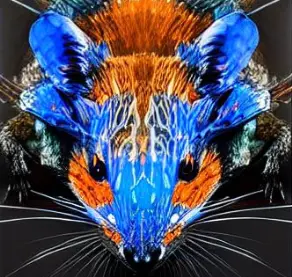The cephalopods experience an apparent sleep state with REM-like activity.
Octopuses are so cool.
I think the thing I like best about them–and their close-relatives–is this theory on how they possibly see color, despite not having color-sensitive cones like vertebrates. Basically, they SHOULD see only in black and white based on the lack of cones in their retinas–but that doesn’t seem to be the case.
https://news.berkeley.edu/2016/07/05/weird-pupils-let-octopuses-see-their-colorful-gardens/
So, octopuses have weird-shaped pupils. And scientists theorize that these pupils basically split light like a prism, and they can selectively focus each wavelength on the retina.
You know how humans can focus near and see near things sharply, then focus further out? Octopuses might do that with colors. So instead of seeing all colors at once, they can bring different parts/colors of a colored object into focus at different times. So focus one way, and all the yellow bits of an object turn yellow, and focus another, maybe the green or orange or blue bits light up. Seeing color sequentially as the octopus eyes focus, instead of all at once.
It’s such a DIFFERENT way to physically determine the color of something–and it seems like it might take more effort too, to process that sort of sensory data in the brain.
Personally, I wonder if that has an impact on why they are so much smarter than other invertebrates. Maybe between the unique color vision, and having to control all their limbs, you just need a better brain?
Eyes in general are crazy, the last common ancestor between octopuses and humans didn’t even have eyes so both types of eyes developed independently.
They also become more sociable when given certain recreational drugs. The more you know!
It’s believed jumping spiders do as well
Additionally, here’s a great video on them



